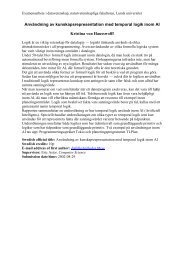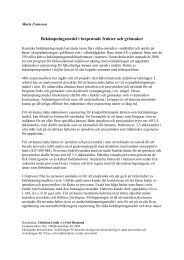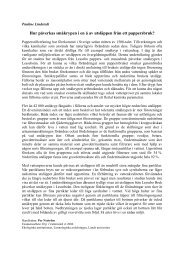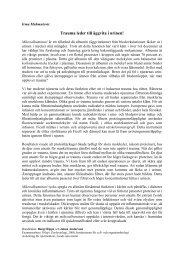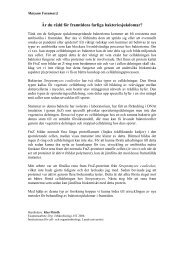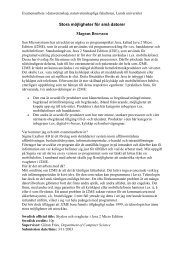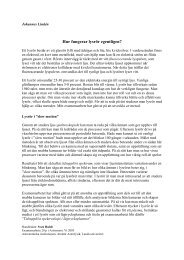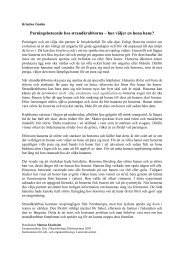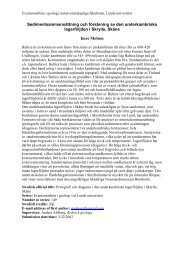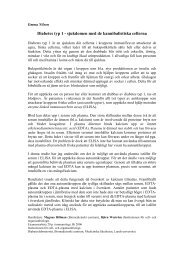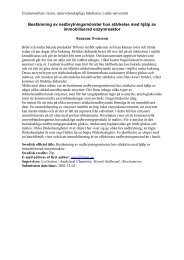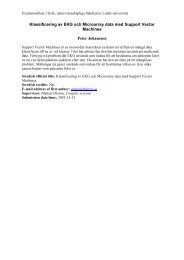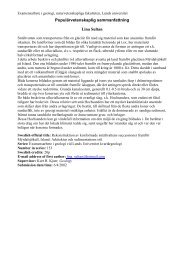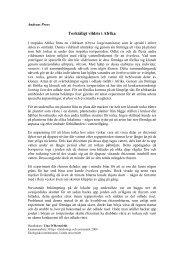Stefan Termén - IT - Lunds universitet
Stefan Termén - IT - Lunds universitet
Stefan Termén - IT - Lunds universitet
You also want an ePaper? Increase the reach of your titles
YUMPU automatically turns print PDFs into web optimized ePapers that Google loves.
Examensarbete i biologi, naturvetenskapliga fakulteten, <strong>Lunds</strong> <strong>universitet</strong>Does the CD30L-CD30 Interaction Play a Role in Allergic Reactions?<strong>Stefan</strong> <strong>Termén</strong>Biology, Cellular and Molecular ImmunologySpring 1999Abstract in EnglishThe allergic response, like every immune response, involve dendritic cells and T cells. In thisstudy, it is investigated whether human dendritic cells express the CD30 ligand (CD30L). It isalso investigated what the effects are of CD30 ligation on human T cell clones with regards tothe levels of secreted IL-4, IL-5, and IFN-g. The CD30L-CD30 interaction could be importantfor understanding allergy. It is shown, that a small population of immature dendritic cellsindeed express the CD30 ligand, and that cytokine production of human Th0-like and Th2-like cell clones is increased by CD30 ligation. Other researchers have shown that CD30-ligation also renders cells more sensitive to induction of apoptosis through the tumor necrosisfactor receptor 1. Therefore, I speculate that the CD30L-CD30 interaction could serve both toaggravate and to limit allergic reactions.



